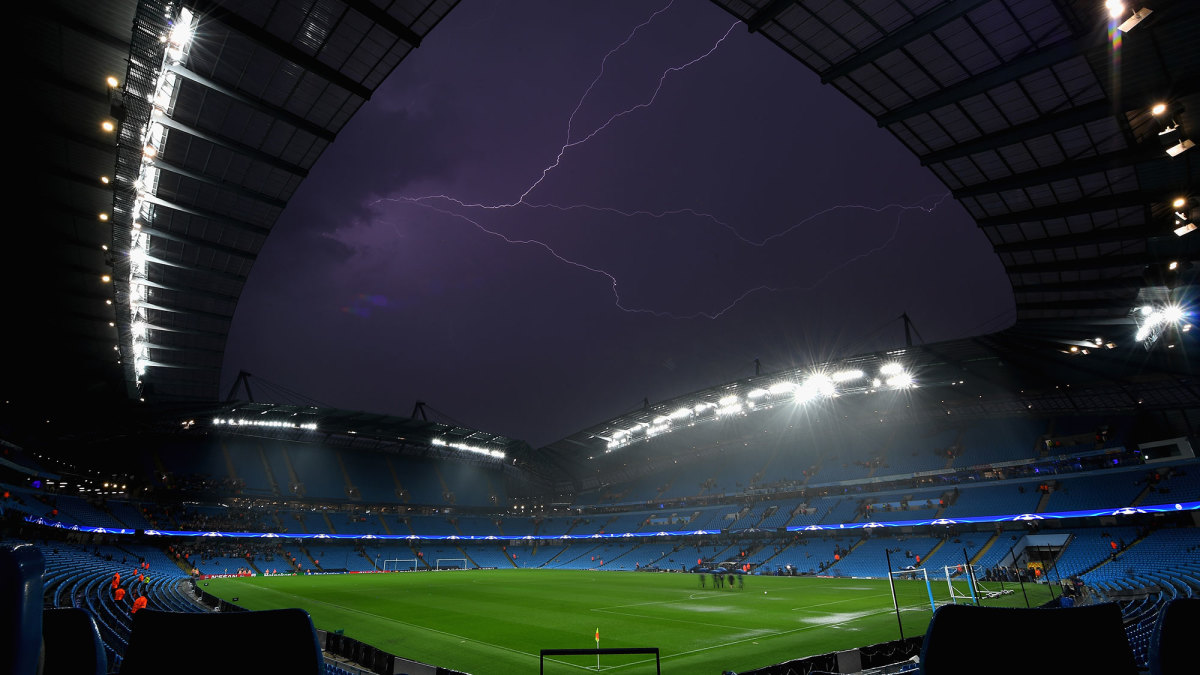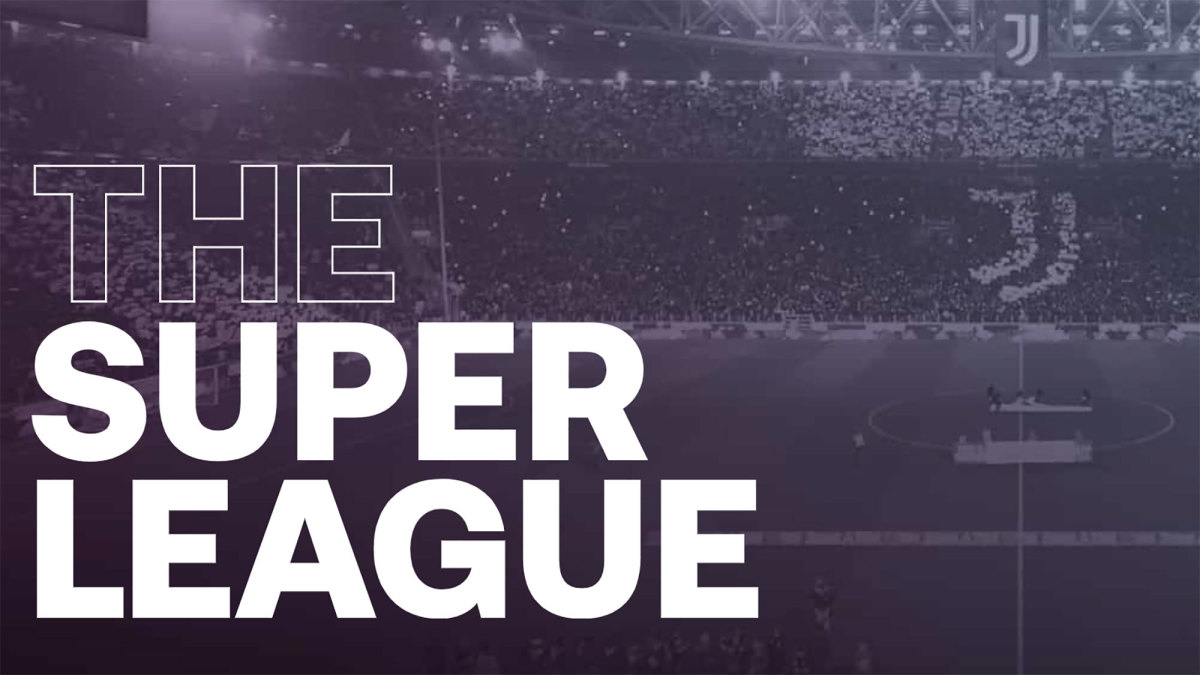The Super League Storm Is Here
As of Monday, European football stands on the brink. In terms of shaping the future of the game, deciding what football is and who it should be run to benefit, these next few days represent probably the most critical negotiations since the establishment of the European Cup in 1955, perhaps since the foundation of FIFA in 1904. A super league has been proposed, or threatened, with a degree of seriousness for at least three decades; now, it is finally here.
It may be that, as so often in the past, these proposals turn out to be no more than leverage for the elite to demand grater concessions from UEFA, but nobody should not take them seriously. This is not mere brinkmanship. There is substance to the plans, as was made clear in a statement released shortly after midnight Central European Time on Monday morning.
“Twelve of Europe’s leading football clubs have today come together to announce they have agreed to establish a new mid-week competition, the Super League, governed by its founding clubs,” it read. “AC Milan, Arsenal FC, Atletico de Madrid, Chelsea FC, FC Barcelona, FC Internazionale Milano, Juventus FC, Liverpool FC, Manchester City, Manchester United, Real Madrid CF and Tottenham Hotspur have all joined as founding clubs. It is anticipated that a further three clubs will join ahead of the inaugural season, which is intended to commence as soon as practicable.”

UEFA's Executive Committee is gathering in Montreux, Switzerland, on Monday, a scheduled meeting at which it was supposed to ratify the proposed changes to the format of the Champions League. That something was brewing became clear at the beginning of April when the details of those plans were not formally announced after certain elite clubs demanded greater than a 50% stake in the new entity. But still, the full extent of the plans, when announced on Sunday, came as a shock.
The statement spoke of how “the global pandemic has accelerated the instability in the existing European football economic model,” a tacit acknowledgement of the serious financial issues afflicting many of the super clubs. Barcelona is $1.5 billion in debt, but that is only the most striking of the figures. Inter is $375 million in debt at a time when its Chinese owner, Suning, has folded its Chinese Super League club and is committed to retrenchment. Juventus’s debt is over $400 million. Tottenham has taken out an emergency loan from the Bank of England. Real Madrid is clearly trimming costs.
“For a number of years,” the statement went on, “the founding clubs have had the objective of improving the quality and intensity of existing European competitions throughout each season, and of creating a format for top clubs and players to compete on a regular basis.” Which is to say that they want to play each other more frequently because that will make them even more money. The pandemic may have accelerated the process, but nobody should doubt that the goal of a super league long predates it.
The plan, as laid out in the statement, is for two groups of 10 clubs, each playing each other home and away. The top three sides in each group would then qualify for two-legged quarterfinals, with the fourth and fifth clubs in each group playing off for the remaining two slots. Each competing team would thus be guaranteed 18 games a season, with the finalists playing 23 (or perhaps 25 if they go through a playoff). That compares to six guaranteed games for teams who make the group stage under the present format, with 13 for the finalists.
But the big difference is that 16 of those places would be guaranteed as of right, and that those founder members would be guaranteed far more money than any qualifier, and would have far more voting power. To have four qualifiers at all looks like a fig leaf to offer at least some cover for what this really is: a closed league based on a quasi-franchise model.

The obvious absentees from the list of 12 are Paris Saint-Germain and the big German clubs. PSG, backed by the Qatari state, has perhaps felt the financial pinch less than other major clubs and can afford to wait and see which way the wind is blowing. Bayern Munich and Borussia Dortmund, meanwhile, are restricted in what they can do without a vote from members who have a historical belief in the social value of football, seeing it more than just an exercise in making extremely rich people even richer.
What happens next is unclear. Even some of the 12 clubs involved seem to have been taken by surprise by the pace of developments. All the major domestic leagues in Europe and UEFA have condemned the plans, with threats of expelling clubs from domestic competitions. The objections are threefold.
Firstly, Super League teams would have even bigger financial advantages over domestic rivals than they already enjoy (the figure mentioned is almost $500 million for each club just to sign up; around three times more than a club would make from winning the current Champions League), while cutting off a potential revenue stream for a smaller side who did manage to finish in the top four.
Secondly, the additional fixtures would mean changes to the domestic calendar and, in England, probably the abolition or at least restructuring of the League Cup, costing smaller clubs valuable revenue. And finally, a superclub who started the season poorly would have no incentive to field a strong side in subsequent games became their place in Europe would already be guaranteed, undermining the integrity of the competition.
But expulsion is not a straightforward process, even before the issue of legal challenges and who has the right to do what. The fear of the 14 other Premier League clubs must be that without the Big Six, their bargaining power is reduced—and there is the very present danger that the Big Six could simply rejoin the Football League from which the Premier League split in 1992. And for all it might be nice to believe that clubs would act out of solidarity with each other or through principle, each will be desperately jockeying to secure the best possible outcome for itself. The Football League itself, meanwhile, would doubtlessly relish the opportunity to bloody the nose of the Premier League.
UEFA responded to news of the plans with a strong statement on Sunday, dismissing the plans as a “cynical project founded on the self-interest of a few clubs” and threatening to ban players involved from “any competition at domestic, European or world level.” That statement was signed by the Premier League, La Liga, Serie A and the football associations of England, Spain and Italy, but it’s not clear whether it would be legally enforceable—or even how much of a deterrent it would be for players. When the El Dorado rebel league ran in Colombia between 1949 and 1954, players still happily flocked to play in it, even though it led to bans from international football.
And the threat of a ban makes sense anyway only if FIFA was prepared to enact it. FIFA did issue a statement on Sunday, speaking of “solidarity” and insisting that “any football competition, whether national, regional or global, should always reflect the core principles of solidarity, inclusivity, integrity and equitable financial redistribution,” but it was notably short on specifics.
FIFA had previously promised to back UEFA against super league proposals, but equally it has promoted an expanded Club World Cup as a way of securing leverage in the club game. The comparative weakness of its statement may be interpreted as a tacit acknowledgement that it would not necessarily support UEFA. Its role will be crucial.
The other factor is fans, whose representative bodies have almost universally condemned the proposals. The present model is fairly evidently and severely flawed, but at least football has preserved the idea of the game as one great interconnected pyramid. So severe has been the backlash that politicians, including U.K. prime minister Boris Johnson and French president Emmanuel Macron, have spoken out against the Super League. The PR damage has already been severe.
Perhaps the superclubs believe they can ride that out, that global supporter bases will compensate for local anger, and that the financial rewards will be worth it, but the general sentiment may empower UEFA not to make further compromises. This is a showdown that feels as though it’s been coming for years, and it’s hard to see why UEFA would offer a deal that may keep the 12 rebel clubs onside in the knowledge it would almost certainly only be short-term. UEFA may never again be in such a strong position politically.
None of which means anything if this comes, as seems likely, to a legal battle. Broadcasters with existing deals and clubs left behind are already floating the idea of suing the rebels for breach of contract and diminishing the value of the product, but there seems to be a lack of certainty about how viable that would be.
At this stage, all that is sure is that a storm that has been rumbling for years has now broken, and the probable outcome is war. Football as we know it may not survive.
More Soccer Coverage
